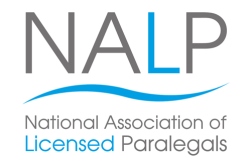Submit Your Nomination for PA of the Year 2018
 SecsintheCity have just launched their 7th annual PA of the Year Awards, championing the business-critical contribution that PAs and EAs make to the organisations they work for.
SecsintheCity have just launched their 7th annual PA of the Year Awards, championing the business-critical contribution that PAs and EAs make to the organisations they work for.
If you’re a talented PA or EA, or work with someone who you think should be recognised, submit your nomination today.
Click here to nominate yourself or a colleague.
Why enter?
Winning Legal PA of the Year is recognition of your hard work and a career highlight not to be missed.
There are fantastic prizes to be won, and the winners will be announced at an awards ceremony at The Ivy, London, on Thursday 8th November.


 The University of Westminster is delighted to invite
The University of Westminster is delighted to invite  By Maudie Powell-Tuck and Becky Kells, AllAboutLaw
By Maudie Powell-Tuck and Becky Kells, AllAboutLaw It may sound innocent enough, but the interview question about salary expectations is a loaded one. Talking about money is awkward at the best of times, but in an interview situation it can be particularly tricky.
It may sound innocent enough, but the interview question about salary expectations is a loaded one. Talking about money is awkward at the best of times, but in an interview situation it can be particularly tricky. Kathleen Riordan won Legal PA of the Year at SecsintheCity’s PA of the Year Awards 2017. The judges praised Kathleen, as one of her nominations said: she’s “the embodiment of team first, self second, Kathleen works conscientiously and tirelessly, often without recognition, to get the job done.” In this interview, we’ll find out how Kathleen became a Legal PA and what drives her to succeed in the role.
Kathleen Riordan won Legal PA of the Year at SecsintheCity’s PA of the Year Awards 2017. The judges praised Kathleen, as one of her nominations said: she’s “the embodiment of team first, self second, Kathleen works conscientiously and tirelessly, often without recognition, to get the job done.” In this interview, we’ll find out how Kathleen became a Legal PA and what drives her to succeed in the role.  If you have studied
If you have studied The National Association of Licensed Paralegals (NALP) is happy to announce that it is offering
The National Association of Licensed Paralegals (NALP) is happy to announce that it is offering  What is the Forfeiture Rule all about? How did it come about? It is based on the fact that it is against the policies of public law to allow convicted murderers to claim an inheritance. The Forfeiture Rule also applies to gifts that have been left in a will for the “criminal” under intestacy rules, as well as to any property belonging to a surviving descendant, and also the benefits of life insurance. The law is designed to stop murderers from benefiting from their crimes – this is known as the Forfeiture Rule.
What is the Forfeiture Rule all about? How did it come about? It is based on the fact that it is against the policies of public law to allow convicted murderers to claim an inheritance. The Forfeiture Rule also applies to gifts that have been left in a will for the “criminal” under intestacy rules, as well as to any property belonging to a surviving descendant, and also the benefits of life insurance. The law is designed to stop murderers from benefiting from their crimes – this is known as the Forfeiture Rule. Are you unwittingly scaring off potential employers because of basic social media mistakes?
Are you unwittingly scaring off potential employers because of basic social media mistakes? What is the duty of care that a police force owes to the citizens they protect? Should the police be liable if they fail to detect a crime? What if the police fail to act and this causes an injury? Do the police have a duty to protect victims or witnesses of crime? What if the police give a firearm to an officer who is unstable? The answer to all these questions for the most part has been that the police have no duty of care. In other words, any of these failures could happen and it would be difficult or impossible to bring a claim for compensation. That has been the case up to now, but change seems likely to follow after a Supreme Court judgment in February. The law that has changed relates to policy factors and when it is fair, just and reasonable for a duty of care to be owed.
What is the duty of care that a police force owes to the citizens they protect? Should the police be liable if they fail to detect a crime? What if the police fail to act and this causes an injury? Do the police have a duty to protect victims or witnesses of crime? What if the police give a firearm to an officer who is unstable? The answer to all these questions for the most part has been that the police have no duty of care. In other words, any of these failures could happen and it would be difficult or impossible to bring a claim for compensation. That has been the case up to now, but change seems likely to follow after a Supreme Court judgment in February. The law that has changed relates to policy factors and when it is fair, just and reasonable for a duty of care to be owed.